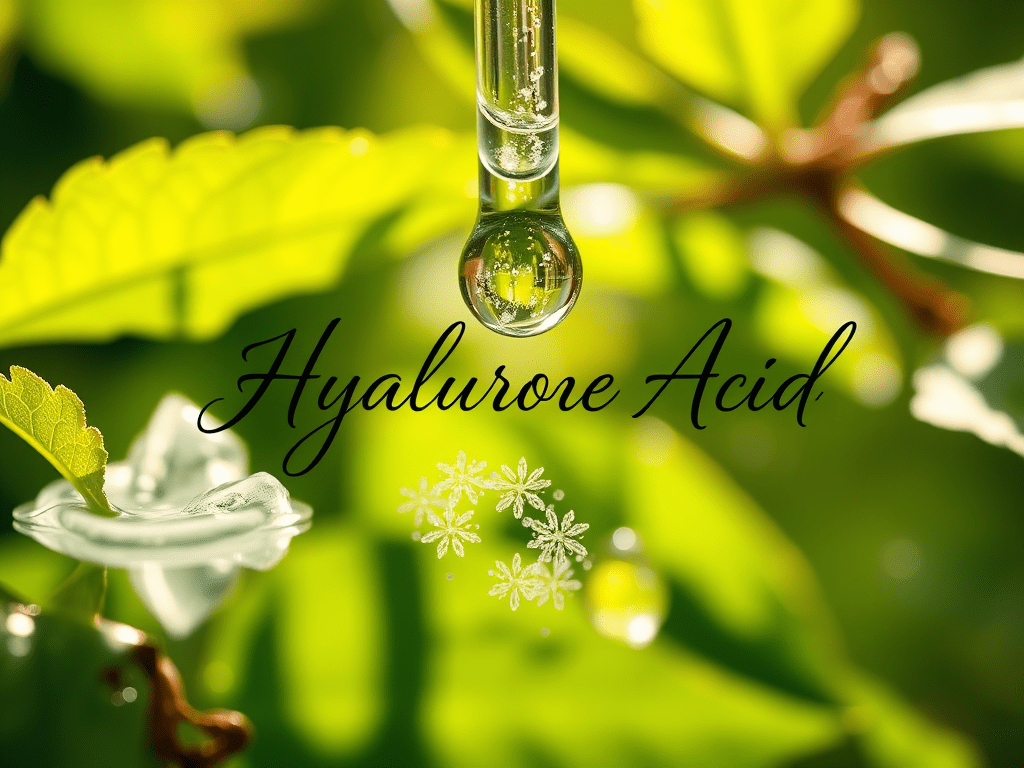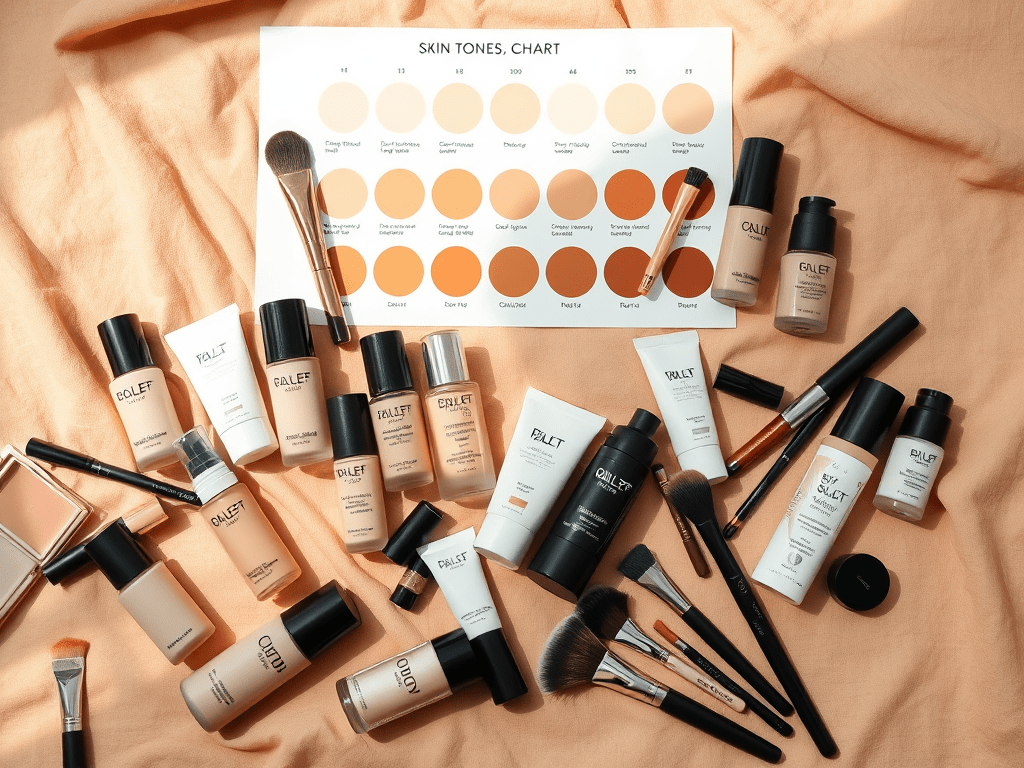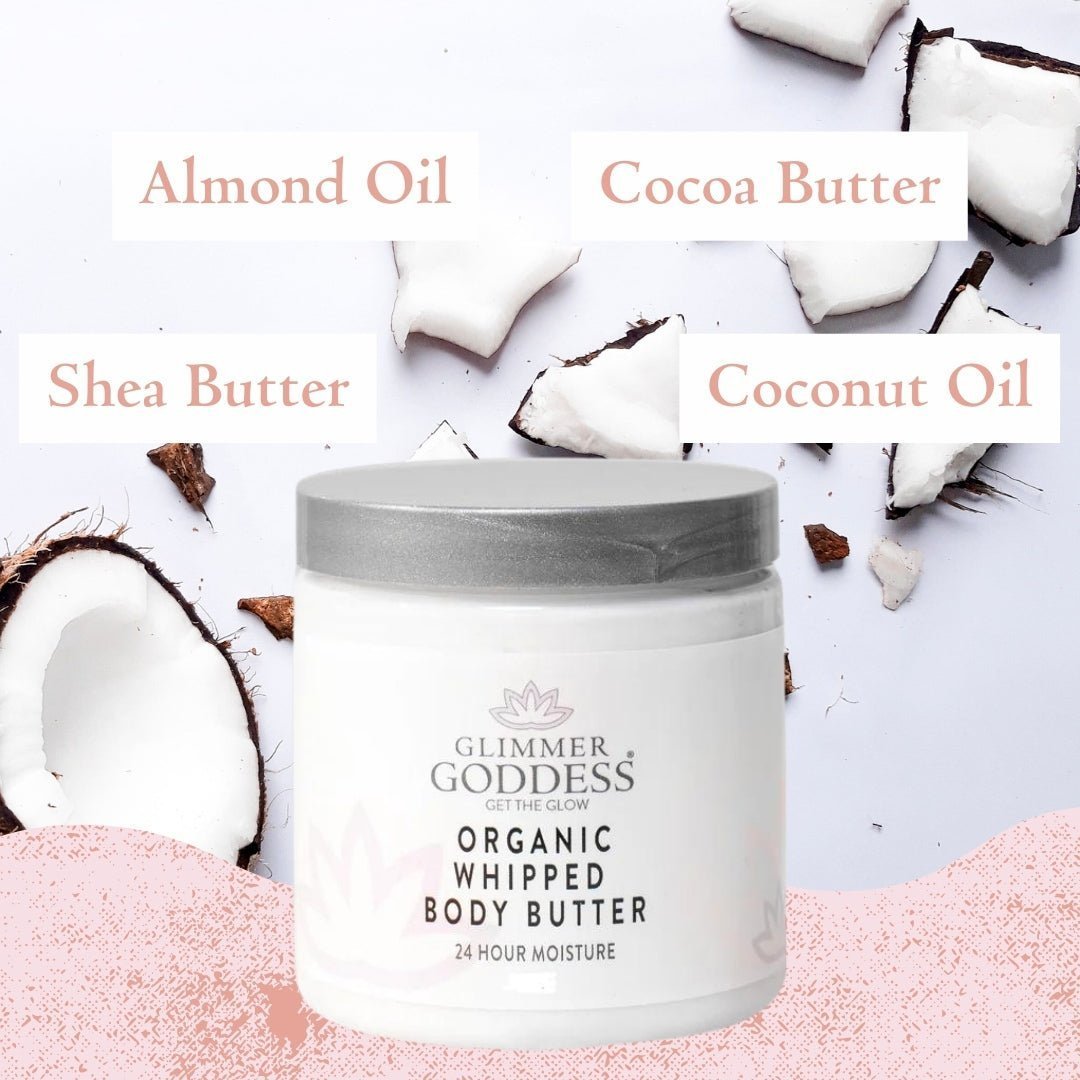
Radiant Beauty Awaits: Discover the Power of Organic Skincare 😍
Hyaluronic acid has become a cornerstone in skincare routines aimed at combating dryness and aging. This naturally occurring molecule is renowned for its unique ability to attract and retain moisture, making it an indispensable ingredient for those with dry skin. In this blog, we will explore the myriad benefits of hyaluronic acid, how it works, and the best practices for incorporating it into your daily skincare routine.
The Remarkable Benefits of Hyaluronic Acid for Dry Skin
What Exactly is Hyaluronic Acid?
Hyaluronic acid is a remarkable substance that has gained immense popularity in the world of skincare and beauty. It is a naturally occurring polysaccharide found in the human body, primarily in the skin, joints, and connective tissues. This versatile molecule has the unique ability to attract and retain water, making it an invaluable ingredient in the quest for healthy, hydrated skin.
Hyaluronic acid is often described as the "fountain of youth" for its remarkable ability to plump and smooth the skin, reducing the appearance of fine lines and wrinkles. Its hydrating properties make it a go-to solution for those struggling with dry, dull, or aging skin.
- Hyaluronic acid is produced naturally in the body, but its levels tend to decline with age, leading to the visible signs of aging.
- The molecule's exceptional water-binding capabilities allow it to hold up to 1,000 times its own weight in water, making it a powerful humectant.
- Hyaluronic acid is found in various parts of the body, including the skin, joints, and eyes, where it plays a crucial role in maintaining healthy tissue structure and function.
How Does Hyaluronic Acid Benefit Dry Skin?
Hyaluronic acid's remarkable ability to attract and retain water makes it a game-changer for individuals with dry skin. By deeply hydrating the skin, this multifaceted ingredient can effectively address a wide range of skin concerns.
**Hyaluronic acid's hydrating properties are particularly beneficial for those struggling with dry skin, as it helps to:
-
Replenish moisture levels and prevent water loss, leaving the skin feeling soft, supple, and nourished.
-
Plump up the skin, reducing the appearance of fine lines and wrinkles for a more youthful, radiant complexion.
-
Improve the skin's barrier function, protecting it from environmental stressors and further moisture loss.
-
Minimize the visibility of pores and smooth the skin's texture for a more even, refined appearance. **
-
Hyaluronic acid can be found in a variety of skincare products, including serums, moisturizers, and even sheet masks, making it accessible and easy to incorporate into any skincare routine.
-
By using hyaluronic acid-infused products, individuals with dry skin can experience a noticeable improvement in hydration, plumpness, and overall skin health.
What Are the Key Features of Hyaluronic Acid?
Hyaluronic acid is a true powerhouse in the world of skincare, boasting a remarkable array of features that make it a standout ingredient. From its ability to attract and retain water to its anti-aging properties, hyaluronic acid is a must-have for anyone seeking radiant, healthy-looking skin.
**Some of the key features that make hyaluronic acid so special include:
-
Exceptional Water-Binding Capacity: Hyaluronic acid can hold up to 1,000 times its own weight in water, making it a highly effective humectant that can deeply hydrate the skin.
-
Anti-Aging Benefits: By plumping and smoothing the skin, hyaluronic acid can help minimize the appearance of fine lines and wrinkles, promoting a more youthful, radiant complexion.
-
Barrier Function Enhancement: Hyaluronic acid strengthens the skin's natural barrier, protecting it from environmental stressors and further moisture loss.
-
Versatility: Hyaluronic acid can be found in a wide range of skincare products, from serums and moisturizers to sheet masks and eye creams, making it a versatile ingredient that can be easily incorporated into any routine. **
-
Hyaluronic acid is a naturally occurring substance in the body, which means it is generally well-tolerated and non-irritating for most skin types.
-
In addition to its skincare benefits, hyaluronic acid is also used in various medical applications, such as joint treatments and wound healing, further demonstrating its versatility and efficacy.
Hyaluronic acid is a remarkable ingredient that truly stands out in the world of skincare. Its exceptional water-binding capabilities, anti-aging properties, and ability to enhance the skin's natural barrier make it an invaluable tool in the quest for healthy, radiant skin. By incorporating hyaluronic acid-infused products into your routine, you can experience the transformative power of this extraordinary molecule and enjoy the benefits of deeply hydrated, youthful-looking skin.
The Power of Hyaluronic Acid: Unlocking the Secrets to Radiant Skin
When is the Best Time to Apply Hyaluronic Acid?
Hyaluronic acid has become a buzzword in the skincare industry, and for good reason. This versatile ingredient has the ability to deeply hydrate the skin, plump up fine lines and wrinkles, and leave your complexion looking radiant and youthful. But when is the best time to incorporate hyaluronic acid into your skincare routine?
The answer depends on your skin type and needs, but generally, it's best to use hyaluronic acid in the morning and evening.
- Applying hyaluronic acid in the morning can help to lock in moisture and prep your skin for a day of environmental stressors.
- Using it in the evening can aid in the skin's natural repair and regeneration process while you sleep.
- For those with dry or dehydrated skin, incorporating hyaluronic acid into both your morning and evening routines can be especially beneficial.
- Individuals with oily or acne-prone skin may find that using hyaluronic acid just once a day, either in the morning or night, is sufficient.
Regardless of your skin type, consistency is key when it comes to reaping the full benefits of hyaluronic acid. Incorporating it into your routine as a regular part of your cleansing, toning, and moisturizing steps can help to transform the overall health and appearance of your skin.
What Products Should You Combine with Hyaluronic Acid?
Hyaluronic acid is a versatile ingredient that can be found in a wide range of skincare products, from serums and toners to moisturizers and face masks. But what other ingredients should you pair it with for maximum effectiveness?
Incorporating hyaluronic acid into your routine can be incredibly beneficial, but it's important to consider the other products you're using as well.
- Vitamin C: This powerful antioxidant can help to brighten the skin and protect it from environmental aggressors, making it an excellent complement to hyaluronic acid.
- Retinol: Retinol is known for its ability to reduce the appearance of fine lines and wrinkles, and when combined with hyaluronic acid, it can help to hydrate and plump the skin.
- Niacinamide: This multi-tasking ingredient can help to regulate oil production, minimize the appearance of pores, and improve the overall texture of the skin, all while working in harmony with hyaluronic acid.
- Ceramides: These lipids play a crucial role in maintaining the skin's protective barrier, and when paired with hyaluronic acid, they can help to lock in moisture and prevent transepidermal water loss.
By carefully curating your skincare regimen and incorporating complementary ingredients alongside hyaluronic acid, you can unlock the full potential of this skincare superstar and achieve the healthy, radiant complexion you've been craving.
How Much Hyaluronic Acid Should You Use?
When it comes to using hyaluronic acid, more isn't always better. In fact, applying too much of this powerful ingredient can actually have the opposite effect, leading to dryness, irritation, and even an increase in fine lines and wrinkles. So how much hyaluronic acid should you be using in your skincare routine?
The amount of hyaluronic acid you should use depends on a few key factors:
-
Skin type: Those with dry or dehydrated skin may benefit from using a higher concentration of hyaluronic acid, while those with oily or acne-prone skin may do better with a lower concentration.
-
Product formulation: The concentration of hyaluronic acid can vary widely across different products, so it's important to follow the usage instructions on the packaging.
-
Application method: Applying hyaluronic acid serum directly to damp skin can help it to better penetrate and hydrate the skin, whereas using a hyaluronic acid-infused moisturizer or cream may require a smaller amount.
-
As a general rule of thumb, start with a pea-sized amount of hyaluronic acid serum or essence and gently press it into the skin until fully absorbed.
-
If you're using a hyaluronic acid-infused moisturizer or cream, a dime-sized amount should be sufficient for the face and neck.
-
Gradually increase the amount as needed, but be sure to monitor your skin for any signs of sensitivity or over-hydration.
Remember, when it comes to hyaluronic acid, less is often more. By using the right amount for your skin type and needs, you can enjoy all the plumping, hydrating, and smoothing benefits this skincare superstar has to offer.
The Surprising Truth About Hyaluronic Acid
Is Hyaluronic Acid Only for Dry Skin?
Hyaluronic acid is often touted as a skincare savior for those with dry, dehydrated skin. However, the truth is that this remarkable molecule has benefits that extend far beyond just hydration.
Hyaluronic acid is a powerhouse ingredient that can provide a multitude of benefits for all skin types, not just those with dry skin.
- Hyaluronic acid is a naturally occurring polysaccharide found in the skin, joints, and connective tissues. It has the remarkable ability to hold up to 1,000 times its weight in water, making it an excellent humectant for improving skin hydration.
- Beyond its hydrating properties, hyaluronic acid also plays a crucial role in skin health by promoting collagen production, reducing the appearance of fine lines and wrinkles, and even aiding in wound healing.
- Individuals with oily or acne-prone skin can also benefit from incorporating hyaluronic acid into their skincare routine. By providing hydration without clogging pores, hyaluronic acid can help balance the skin's natural oil production and reduce the risk of breakouts.
Contrary to popular belief, hyaluronic acid is not just for those with dry skin. Its versatility makes it a valuable addition to any skincare regimen, regardless of skin type.
Can Hyaluronic Acid Cause Breakouts?
One of the most persistent myths surrounding hyaluronic acid is that it can cause breakouts. However, this misconception is far from the truth.
Hyaluronic acid is actually a non-comedogenic ingredient, meaning it does not clog pores or contribute to the formation of acne.
- Hyaluronic acid is a water-soluble molecule that is easily absorbed into the skin without leaving behind a greasy or heavy residue. This makes it an ideal choice for those with oily or acne-prone skin, as it can provide hydration without triggering breakouts.
- In fact, some studies have even suggested that hyaluronic acid may have the potential to improve the appearance of blemishes and reduce the severity of acne. By promoting skin healing and reducing inflammation, hyaluronic acid can help to clear up existing breakouts and prevent future ones.
- It's important to note that while hyaluronic acid itself does not cause breakouts, other ingredients in a skincare product may. Always be sure to check the full list of ingredients and choose products that are non-comedogenic and formulated for your specific skin type.
Contrary to popular belief, hyaluronic acid is not a culprit for breakouts. In fact, it can be a valuable ally in the fight against acne, providing hydration without clogging pores.
What Myths Surround Its Effectiveness?
Hyaluronic acid has become a buzzword in the skincare industry, but with its growing popularity, a number of myths and misconceptions have also emerged.
Understanding the true efficacy of hyaluronic acid is crucial to maximizing its benefits for your skin.
- One common myth is that hyaluronic acid can "plump up" the skin and instantly erase fine lines and wrinkles. While hyaluronic acid can temporarily improve the appearance of wrinkles by drawing moisture into the skin, it is not a miracle cure for aging. Consistent, long-term use is required to see lasting results.
- Another misconception is that higher concentrations of hyaluronic acid are always better. In reality, the effectiveness of hyaluronic acid depends on more than just the concentration. Factors such as the molecular weight and source of the hyaluronic acid also play a role in its ability to penetrate and hydrate the skin.
- Some people also believe that hyaluronic acid can "pull moisture from the skin" and lead to dryness. This is a myth, as hyaluronic acid is a humectant, meaning it attracts and retains moisture in the skin. However, it's important to pair hyaluronic acid with a occlusive moisturizer to lock in the hydration.
While hyaluronic acid is a highly effective skincare ingredient, it's important to separate fact from fiction to maximize its benefits. Understanding the true science behind this remarkable molecule can help you incorporate it into your routine in a way that truly nourishes and transforms your skin.
Radiant Beauty Awaits: Discover the Power of Organic Skincare 😍
Organic Hyaluronic Acid Facial Cleanser 🧼
Experience the ultimate in organic skincare with our Hyaluronic Acid Facial Cleanser. Gently hydrate and exfoliate for silky smooth skin and a bright complexion without any drying effects. Nourish your skin with natural ingredients for a truly radiant glow.
This facial cleanser uses organic Hyaluronic Acid, micro jojoba pearls, Aloe, and other natural ingredients to cleanse, exfoliate, and protect your skin from environmental damage. It nourishes and hydrates, leaving behind a smooth and healthy complexion.
- Organic Hyaluronic Acid deeply hydrates and plumps the skin, minimizing the appearance of fine lines and wrinkles. 💧
- Micro jojoba pearls provide gentle exfoliation, sloughing away dead skin cells and revealing a radiant, youthful glow. 🌟
- Aloe Vera soothes and calms the skin, reducing redness and inflammation. 🌿
- Antioxidant-rich botanical extracts defend against environmental stressors, keeping your skin healthy and protected. 🛡️
- The creamy, luxurious formula leaves your skin feeling clean, refreshed, and deeply nourished, without any tightness or dryness. 🧖♀️
Organic Hyaluronic Acid Serum - Skin Plumper 💫
Organic Hyaluronic Acid Serum plumps & hydrates, making skin appear younger and glowing. This Hyaluronic Acid serum helps reduce dryness, redness & flaking while preventing wrinkles. Organic Hyaluronic Acid plumps and reduces the appearance of fine lines and wrinkles, while Vitamin C promotes firmness and brightness.
This powerful serum nourishes, hydrates, and protects the skin with natural ingredients and antioxidants. With botanical extracts and antioxidants, skin is left rejuvenated, elastic, and even-toned. Protect and enhance your skin with this top-of-the-line serum.
- Vitamin C boosts firmness & brightness, helping to even out skin tone and reduce the appearance of discoloration. 🍊
- Botanical extracts & antioxidants rebuild collagen, boost elasticity & even skin tone, defending skin from environmental damage. 🌿
- Hyaluronic Acid plumps and hydrates, minimizing the look of fine lines and wrinkles for a youthful, radiant complexion. 💧
- This serum deeply nourishes and replenishes the skin, leaving it feeling smooth, supple, and healthy. 🌺
- With regular use, this serum can help improve skin's overall texture, clarity, and luminosity for a truly radiant glow. 🌟
Q&A
What is hyaluronic acid?
Hyaluronic acid is a naturally occurring polysaccharide found in the human body, primarily in the skin, joints, and connective tissues. It has the unique capability to attract and retain water, making it a key ingredient in skincare for hydration and anti-aging.
How does hyaluronic acid benefit dry skin?
Hyaluronic acid replenishes moisture levels, reduces the appearance of fine lines and wrinkles, improves the skin's barrier function, and enhances the overall texture and appearance, making it exceptionally beneficial for individuals with dry skin.
When is the best time to apply hyaluronic acid?
It is generally recommended to use hyaluronic acid both in the morning and evening. During the day, it locks in moisture in preparation for environmental stressors, while at night it aids skin's natural repair process.
Can hyaluronic acid cause breakouts?
No, hyaluronic acid is non-comedogenic, meaning it does not clog pores or contribute to acne. In fact, it can help balance the skin's oil production and reduce the risk of breakouts.
What should you combine with hyaluronic acid?
For maximum effectiveness, hyaluronic acid can be paired with ingredients such as Vitamin C, retinol, niacinamide, and ceramides, all of which enhance skin hydration and overall health while addressing specific concerns.
Hyaluronic acid is a powerhouse ingredient that goes beyond simple hydration. Its versatility makes it suitable for all skin types, offering numerous benefits including plumping, smoothing, and enhancing skin's natural barrier function. By integrating hyaluronic acid into your daily skincare routine, you can unlock the secrets to hydrated, youthful-looking skin that radiates health and vitality.





